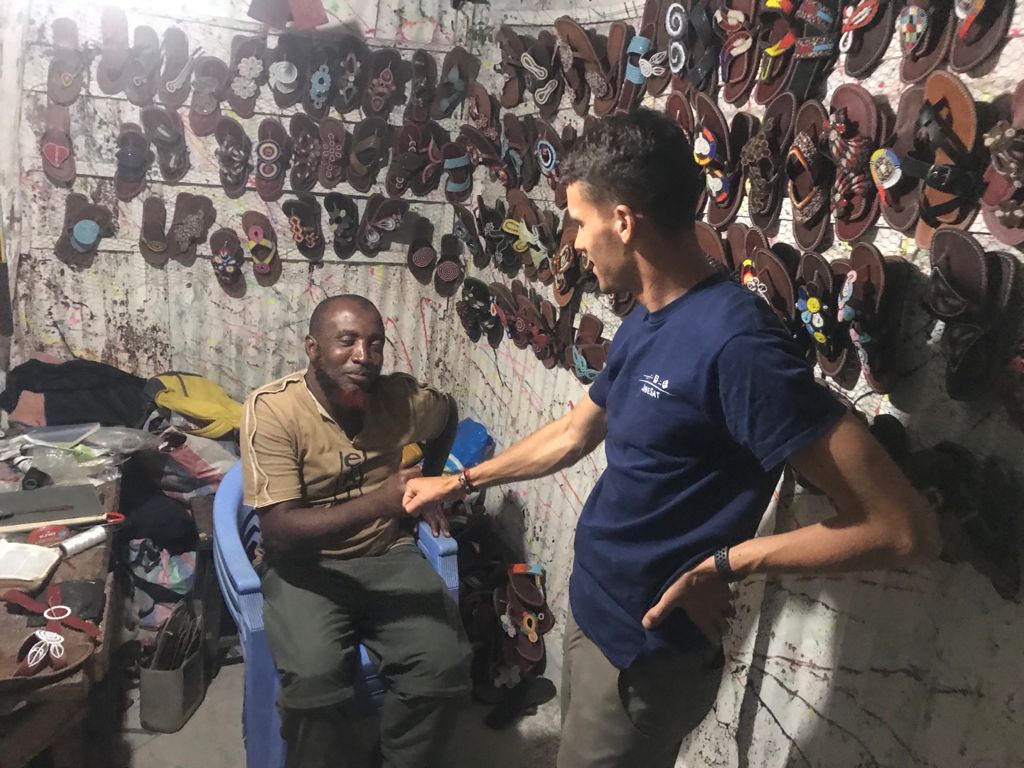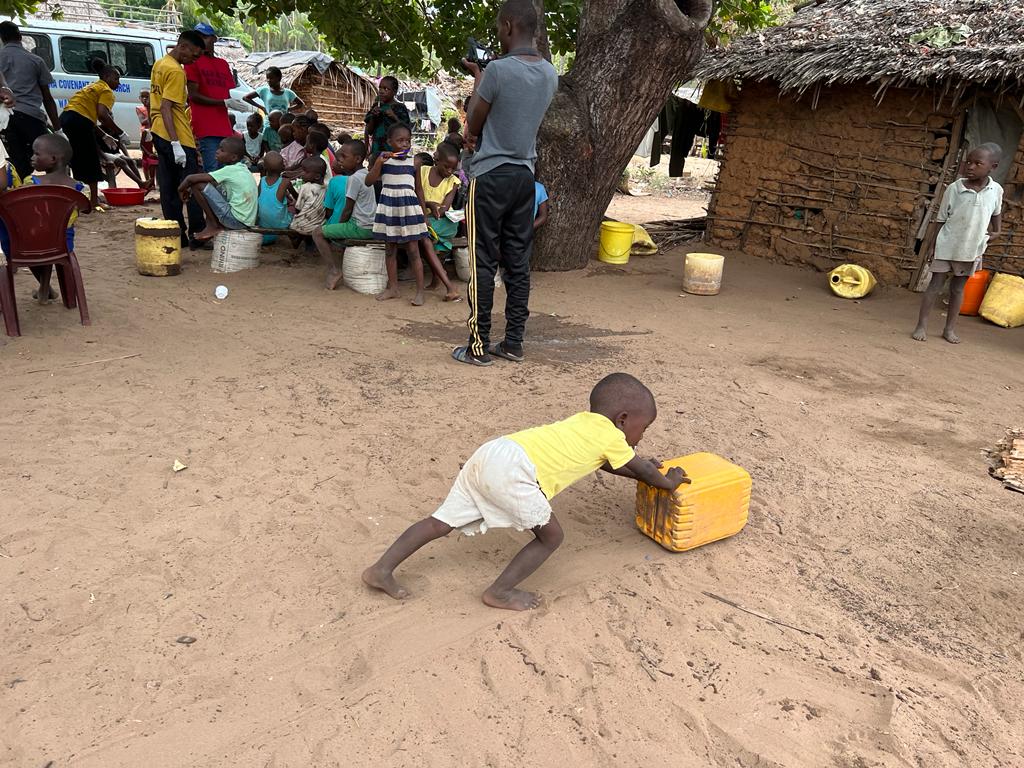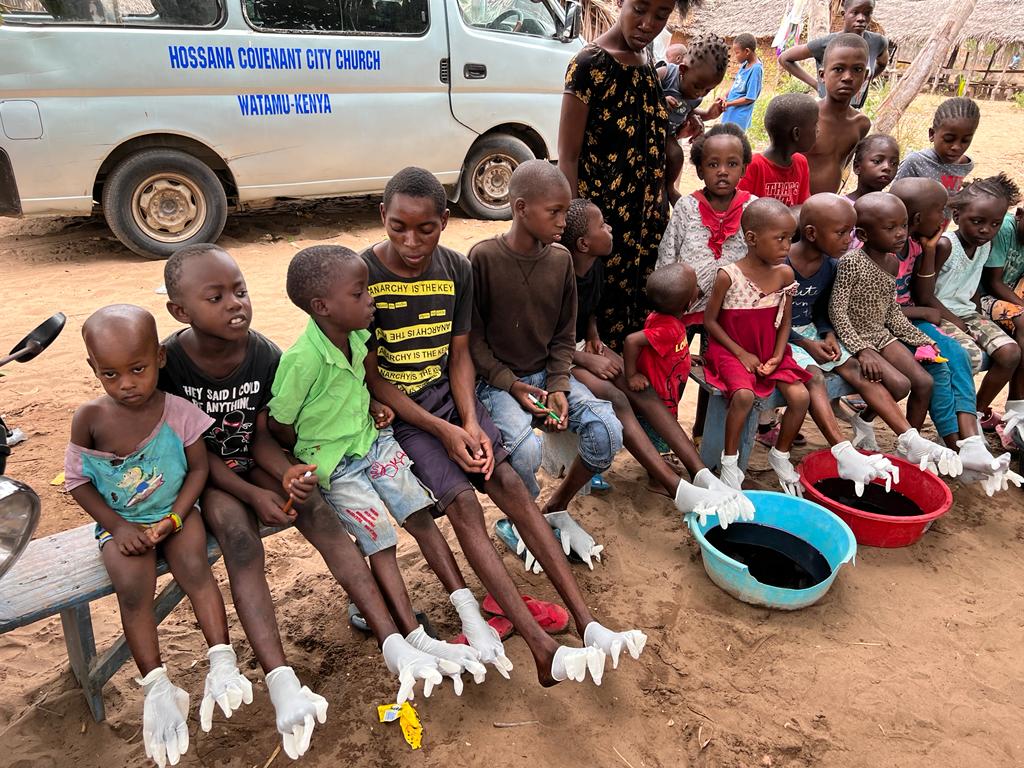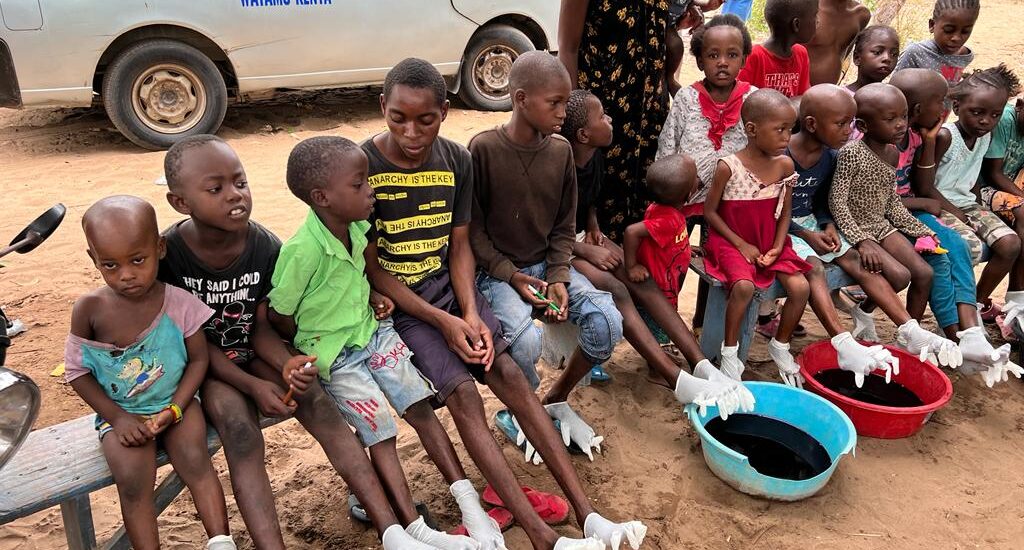
Yep. Every pair we sell provides enough profit to supply five children with their very own sandals. Usually, these children have never owned sandals before. When I first visited the Agape School we started in 2017, my heart was deeply moved for the children who had never owned a pair of shoes before in their life (which was nearly all of them). At the time, I didn’t know a thing about tungiasis, a foot disease prevalent in 11%-50% of school-age children in the very city Agape is in (Wiese, 2017).
My team and I pulled together and personally bought enough shoes for each one of the 60 or so children at the school. I’ll never forget the moment those children opened up their bags and–wow! Their first pair of shoes! Really?! Many of the children cried. Some clutched their new shoes to their chest. Others immediately pushed their dirty, bare feet into the shoes (we bought them socks, too, but not all of the children had the patience to put them on) and ran around as fast as they could, elated. I heard later that several of the kids slept with their shoes in their arms!
This is really the origin of the Sandals with A Story Project. After buying shoes for the kids, I was shopping for souveniers and found a little shop in Watamu with exellent quality sandals for sale. Turns out they are handmade in that very shop and the owner exports the sandals all over the world. I was struck with the high quality workmanship and incredible detail of these sandals. They would have looked at home in any high-end retail shop in the States! I simply had to buy my wife a pair.
Today, we import sandals from that very shop in Watamu and sell them in the States. With each pair we sell, we can (and do) buy five pairs of sandals for children in Watamu where the tungiasis epidemic is serious. With this model, we are able to invest in local Kenyan business owners, bring awareness and business to local stateside coffee shops and boutiques, and–best of all–change a child’s life.
Sandals Provide an Open Door to Frontier Unreached People Groups!
The very best part of this is that many–if not most– of the families we reach with this powerful ministry are unreached peoples. JoshuaProject.net defines an unreached people group as follows.
An unreached or least-reached people is a people group among which there is no indigenous community of believing Christians with adequate numbers and resources to evangelize this people group without outside assistance.
Furthermore, we are focusing our efforts on particular people groups that JoshuaProject defines as Frontier People Groups.
A Frontier People Group (FPG) is:
- an Unreached People Group (UPG)
- with virtually no followers of Jesus and
- no known movements to Jesus,
- still needing pioneer cross-cultural workers.
Joshua Project approximates Frontier People Groups as:
- 0.1% or fewer Christian Adherents and
- no confirmed, sustained movement.
How Can I Help?
From July through the end of September, we are honored to sell our Watamu-handmade sandals at Sunroom Coffee in Atascadero, CA. Come see our selection of ethically-sourced Kenyan sandals today!
If you aren’t in the area but want to take part in this work, join the mission here.
The Team in Action

Meet Baker, the artisan himself! 






References
- Wiese, Susanne, et al. “Prevalence, intensity and risk factors of tungiasis in Kilifi County, Kenya: I. Results from a community-based study.” PLOS Neglected Tropical Diseases 11.10 (2017): e0005925.
Interested in selling our sandals at your shop or online store? Contact us today!
Learn more about KAINOS GLOBAL
